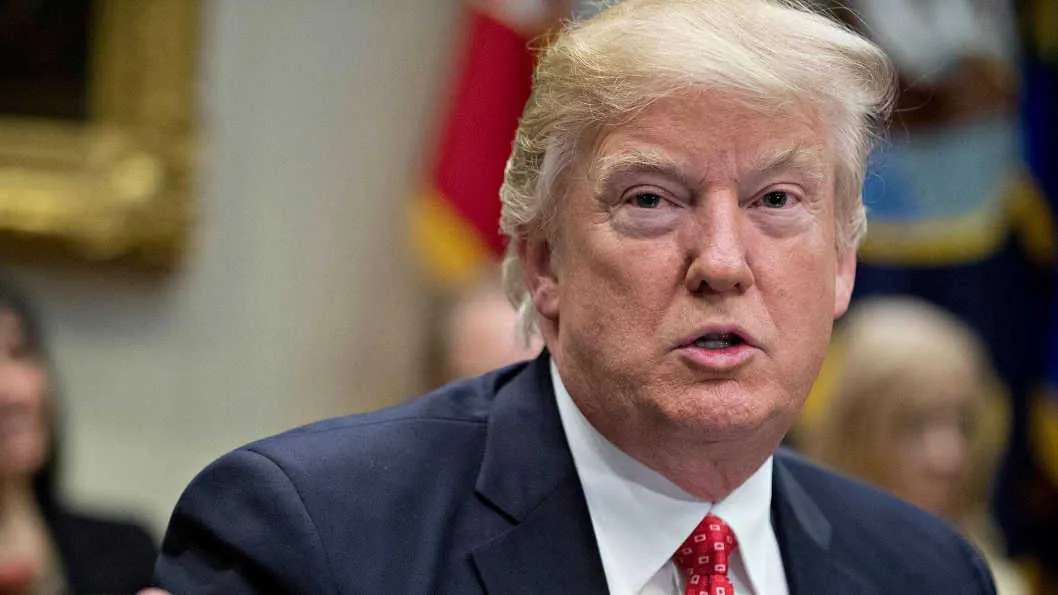Israel has started preparing for Palestinians to leave Gaza, even though the international community rejects US President Donald Trump’s plan to empty the territory. Meanwhile, Egypt has launched a diplomatic push against the proposal, warning that it could threaten its long-standing peace treaty with Israel.
Trump Tries to Justify His Proposal
After widespread backlash, Trump administration officials attempted to soften certain aspects of the plan. They claimed the relocation would only be temporary. However, they provided little detail on how it would work.
On Thursday, Trump posted on social media that Palestinians would be “resettled in far safer and more beautiful communities, with new and modern homes.” He also said Israel would later hand over Gaza to the U.S. Importantly, he insisted that no American troops would be required for rebuilding. A few hours later, U.S. Secretary of State Marco Rubio reiterated that the relocation would be temporary. He stated that Palestinians would live “somewhere else in the interim” while Gaza undergoes reconstruction.
Palestinians and Key Allies Reject the Plan
Palestinians have firmly rejected Trump’s proposal. They fear that once displaced, Israel will never allow them to return. Egypt has also raised serious concerns. It warned that forcing Palestinians out of Gaza would destabilize the region and jeopardize its peace treaty with Israel, which has helped maintain stability for decades.
Saudi Arabia, another key U.S. ally, has opposed the mass transfer as well. It has made it clear that it will not normalize relations with Israel unless a Palestinian state—including Gaza—is established.
Trump and Israeli leaders have described the relocation as voluntary. However, Palestinians remain resolute in their decision to stay in their homeland.
Concerns Over Forced Relocation
Trump and Israeli officials have not clarified what they would do if Palestinians refuse to leave. Human Rights Watch and other organizations argue that if enforced, the plan would amount to “ethnic cleansing.” They define this as forcibly relocating an ethnic group from its land.
On Thursday, Israeli Defense Minister Israel Katz stated that he had ordered the military to prepare for large-scale Palestinian emigration. He mentioned plans to facilitate departures via land crossings and even through sea and air routes. However, there were no immediate signs of these preparations on the ground.
Egypt Pushes Back Against the Plan
Egyptian President Abdel-Fattah el-Sissi has not publicly responded to Trump’s shocking proposal. The plan suggests relocating most of Gaza’s 2.3 million residents while allowing the U.S. to oversee its reconstruction. Before last month’s fragile ceasefire, Israel’s prolonged attacks on Hamas had already reduced much of Gaza to ruins.
Despite Sissi’s silence, the Egyptian government issued a statement on Thursday strongly opposing any efforts to remove Palestinians from Gaza. It called such actions a “blatant violation” of international law. Egypt also warned that the plan could derail ceasefire negotiations and destabilize Middle Eastern relations.
“This behavior provokes the return of hostilities and poses risks on the entire region and the foundations of peace,” the statement read.
Egypt’s Behind-the-Scenes Efforts
Egyptian officials, speaking anonymously, revealed that Cairo has conveyed its opposition to both Washington and Israel. The government warned that the proposal could put its nearly 50-year-old peace agreement with Israel at risk.
One official said Egypt has communicated its concerns to the Pentagon, the State Department, and U.S. lawmakers. Another stated that Israel and its Western European allies—Britain, France, and Germany—were also briefed.
A Western diplomat in Cairo confirmed that Egypt had firmly opposed the plan through multiple channels. The diplomat stressed that Egypt considers the proposal a direct threat to its national security.
Earlier in the war, the Biden administration and some European countries had made similar relocation proposals. Egypt had rejected them. However, Trump’s version was different because he announced it publicly during a White House press conference with Israeli Prime Minister Benjamin Netanyahu.
Hamas and Future Ceasefire Talks
Hamas, which still governs much of Gaza, has condemned Trump’s proposal. On Thursday, the group warned that any U.S. takeover of Gaza would be considered an occupation, implying that armed resistance would follow. However, it is unclear if Hamas’ objections will affect the planned release of Israeli hostages and Palestinian prisoners scheduled for Saturday.
US Officials Scale Back Trump’s Plan
Initially, Trump stated that he wanted to “permanently” relocate most of Gaza’s population to other countries. He envisioned transforming the territory into a luxurious destination, calling it the “Riviera of the Middle East.”
However, Egypt dismissed the idea, insisting that reconstruction does not require displacement. It reaffirmed its commitment to a Palestinian state, including Gaza, the West Bank, and East Jerusalem—territories Israel captured in the 1967 Mideast war.
Israel remains opposed to Palestinian statehood. The government insists on maintaining long-term security control over Gaza and the West Bank. Furthermore, Israel annexed East Jerusalem, considering it its capital, though most of the world does not recognize this claim.
Arab Nations Stand Against Relocation
Last week, Egypt hosted a meeting with top diplomats from Jordan, Saudi Arabia, Qatar, and the United Arab Emirates. Notably, the UAE played a crucial role in the 2020 Abraham Accords, which Trump brokered between Arab states and Israel. However, all five nations firmly rejected any forced relocation of Palestinians from Gaza or the West Bank.
Arab Media Warns of the Consequences
On Thursday, Egypt’s main state-run newspaper, Al-Ahram, published a strong editorial. It warned that Trump’s plan posed a serious threat to Arab nations.
“The Arab countries’ independence, their peoples’ unity, and their territorial integrity are under grave threat,” the editorial stated.
As international opposition grows, it remains uncertain how Israel and the U.S. will proceed with the controversial plan.























